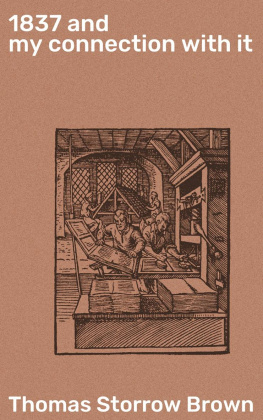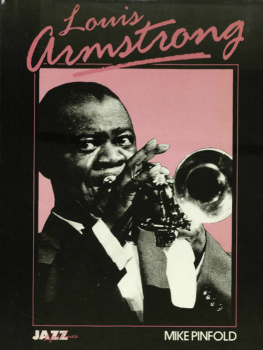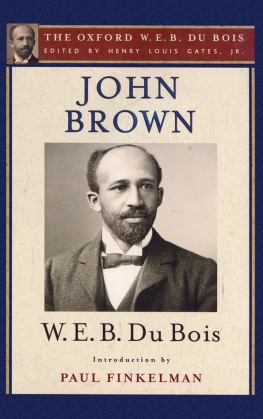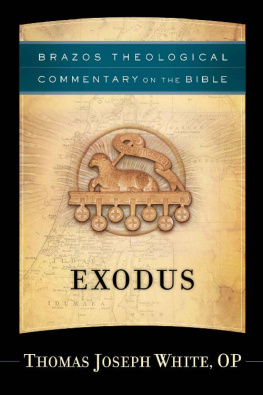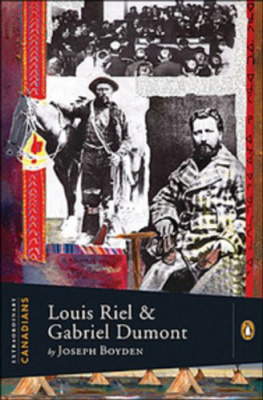The illustrious patriot of Canada, Louis Joseph Papineau, whose name will remain forever prominent while her history endures, was born in the city of Montreal, on the 7th October, 1786, in one of those long, low stone-houses, then so common, on what was then little St. James street - now Nos. 54 and 56 - near the top of the St. Lawrence Hill. His father, Joseph Papineau, notary public, descended from a family that had long before emigrated from Montigny, in the province of Poitou (now the Dpartement des Deux-Svres), France, was a man of majestic stature, who had served with high honor many years in the Provincial Parliament, always conspicuous as a stern and foremost supporter of popular measures in opposition to the petty tyrannies of the time. His mother, of the Cherrier family of St. Denis, was sister to the mother of the Hon. D. B. Viger, and to the mother of Monseigneur Lartigue, the first Roman Catholic Bishop of Montreal.
His school days were passed in the seminary of Quebec, where his name had preceded him as a boy of remarkable aptitude and promise, which was fully maintained during his scholastic term; for, as if thus early impressed with the destinies of a glorious future, and already feeling its responsibilities, he studied deep in the accumulation of knowledge as the foundation of after acquirements. Not content with devotion to the usual hours of study, he sacrificed to books those hours of recreation or rest that the frivolity of youth claims as prerequisite.
Leaving college with its highest honors at the age of seventeen, he commenced the study of law in the office of his cousin, D. B. Viger, where the same intensity of purpose of a mind singularly clear and strong for one so young, rapidly acquired mastership of the jurisprudence of the province; and he was admitted at the bar as a brilliant light, only to pass a short time, meteor-like, through the legal precincts; for his country had already claimed him for higher purposes. While a law student, he was elected member of the Provincial Parliament by the county of Kent - now Chambly - and took his seat in 1810, entering at once the great political arena, prominent in debates, resolutions, and every bold movement, to stand shoulder to shoulder with its stoutest gladiators, then battling with the Governor, Sir James Craig, in a contest so warm that members were consigned by him to prison, while the office of their newspaper organ was destroyed by his soldiery. Such was our Government then!
In 1815, he was elected for the West Ward of Montreal, and continued by re-elections to represent that constituency till 1837.
A conciliatory policy, deemed necessary by Sir George Prevost to secure the fealty of the French-Canadians during the war of 1812, and continued by his immediate successors, allayed political asperities that had nearly driven these Canadians to be the rebellious spirits that Sir James Craig supposed them; and the proved sturdy defenders of the British flag. Among those enrolled was Mr. Papineau, as a captain of militia. It is related of him that, when conducting a portion of Hull's army prisoners from Lachine, a regimental band of regulars struck up "Yankee Doodle", to shame the unfortunates, on which Captain Papineau wheeled his company out of line, declaring he would not countenance such insult. When reported, instead of reprimanding the captain for insubordination, the Governor commended him for his humane consideration.
Mr. Panet, who, for many years, had presided as Speaker of the Assembly, being called to the Legislative Council, all eyes were turned to the young Papineau as his successor, and the House, in January, 1815, only echoed the public voice by electing him. Young in years - in his twenty-ninth - with only four years parliamentary experience, in a quiet time, he was so matured by study and steady action for the post of first Commoners - the highest position in the gift of his countrymen - that he was preferred above all his veteran seniors; and he continued to hold that position till the end of the last Parliament of Lower Canada in 1837, by continued reelections, sometimes unanimous, and always nearly so. The Speaker of that day, when we had no responsible Government, and no responsible minister in the House, was not a mere figurehead in a house commanded by such a minister, but a reality - the head of the commons - the first commoner - really their Speaker - to guide deliberations, defend privileges, and make their voice felt in the government of the province. Earnest and conscientious in the discharge of duty, leaving to others the frivolities of society and care for private concerns, every thought of his life became devoted to public affairs, and to thoroughly fitting himself for his high trust in the coming storm, looming up in the immediate future like the clouds preceding a whirlwind. He held place, not for his honors or emoluments, but, rising to the dignity of position, he felt that he should be what he truly was, the grand tribune of the people; and, deeming the honor and dignity of that people to be involved in the respectability of their chief, he so maintained that dignity and respectability through all the phases of more than twenty years, that no friend had ever anything to blush for or defend in acts of his private life. His high honor always reflected honor on his supporters.
In 1818 he was united in what proved to be the happiest of marriages, with Mademoiselle Julie Bruneau, eldest daughter of Pierre Bruneau, Esq., merchant, of Quebec, and member of Parliament for that city. Superior in intellect and education and personal attractions, endowed with a rare prudence, she was through life the best wives and the best of mothers. A true woman, neither too forward nor too retiring, a devoted companion and wise counsellor, sympathizing in every thought of her husband, his ideas were her ideas, his friends her friends. With admiration for his character, and full faith in his future, she clung closely to him during his stormy parliamentary career, followed him cheerfully in exile to endure its privations, and, when domiciled in his Ottawa retreat, she was there rejoicing in his relief from cares, and continuing to exhibit with him, as they had from the beginning, a most perfect example of all that is excellent and to be admired in every relation of married life. Happily she lived till the storms had passed away, and their sacrifices were unfelt, to enjoy a new year's quiet repose and tranquillity in their last home, where she was the idol of her affections privileged to that rest and dignified leisure for which his soul had long yearned, with those cherished companions - the books of his favourite authors - around him. At Monte-Bello, on the 18th August, 1862, when apparently in her usual excellent health, surrounded by her children and grandchildren, she was suddenly stricken down, and after half and hour's illness, calmly her spirit winged its departure from a world that her whole life had so adored.
With the arrival of the Earl of Dalhousie, in June, 1820, commenced a new Parliamentary era. The offer made by the Assembly in 1810 to provide for the whole civil list, always supplemented by drafts on the British treasury, had been accepted in 1818, and our Parliament was now, when there was a deficiency of 22,000 in the Provincial Chest, called upon to make good its undertaking. Though the act of 1791, which gave to Canada and Assembly that might justly claim all the powers and privileges of the House of Commons, was mainly urged on by the English portion of the population - who had a vague notion of its powers - rather than by the French - few of whom had any notion whatever - these English, soon finding themselves in a minority, cared not for the exercise of these powers, while too many of the French, to whom the clergy had preached quiet submission for half a century, and who were all the time charged with disaffection and seditious aspirations, feared that any opposition to the whims of the Executive might give color to the charges of their opponents. Its great value with many members was its use as an inquisition for calling to account obnoxious officials, while others were satisfied in exercising their right of enacting petty laws. Other politicians were occupied with the thousand details of private affairs, of which Mr. Papineau had none. Throwing these to the winds, with his whole soul absorbed in questions of state, he alone grasped the spirit of the British constitution in its entirety, and alone fully comprehended the positive and paramount authority in many questions conferred by the act of 1791 on the Commons House of Canada. Others were supplied with only the ruder weapons of early warfare; he came fully armed and equipped in the strongest of constitutional armour, with the keenest of weapons, for the grand coming tournament - throughout which the Earl of Dalhousie figured as the champion of colonial misrule, and Papineau as the champion of colonial emancipation.




